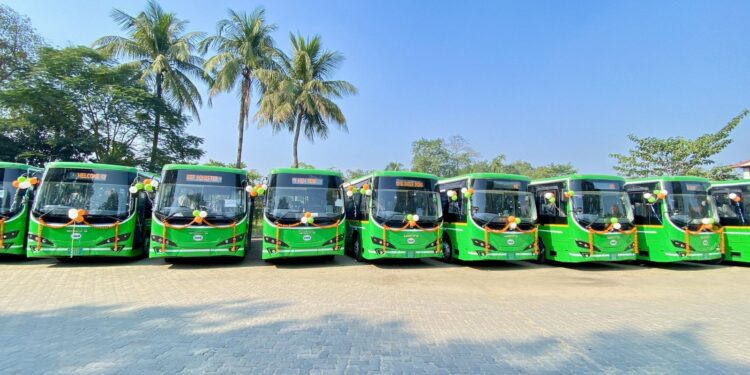From January 1, 200 electric buses with 32 seats each will begin operating on 13 routes in Guwahati. The phased rollout is designed to manage the introduction of these environmentally friendly vehicles, eventually replacing existing diesel-run buses. Chief Minister Himanta Biswa Sarma officially inaugurated the buses at the Rupnagar campus of ASTC.
The deployment of 200 electric buses is part of the government’s commitment to creating a more sustainable and eco-friendly public transportation system. These electric vehicles not only contribute to lowering pollution levels but also serve as replacements for aging diesel-run buses. The phased implementation aims to seamlessly integrate electric buses into the city’s existing transport infrastructure.
The electric buses are categorized into high and low range based on their battery capacity. The high-range buses can cover at least 200 km on a full charge, while the low-range counterparts have a range of up to 160 km. The buses consume 1.02 units of electricity per kilometer. Charging infrastructure includes five stations at Jagiroad, Baihata Chariali, Mirza, ASTC’s Rupnagar campus, and the ISBT in Lokhra. The Rupnagar station, equipped with 16 charging points, has been completed, with four others nearing completion.
Passenger fares for the electric buses will remain unchanged, aligning with current fare structures. The introduction of these buses does not result in an increase in fares. As part of a continued effort to enhance sustainability, an additional 100 to 150 electric buses are slated for procurement in the coming year.
The launch of 200 electric buses represents a crucial step towards transitioning to a green transport system in Guwahati. As the government plans to phase out diesel-run buses by the end of 2024, the electric fleet will play a pivotal role in reshaping urban mobility, reducing pollution, and promoting a more sustainable and eco-friendly transportation network.





